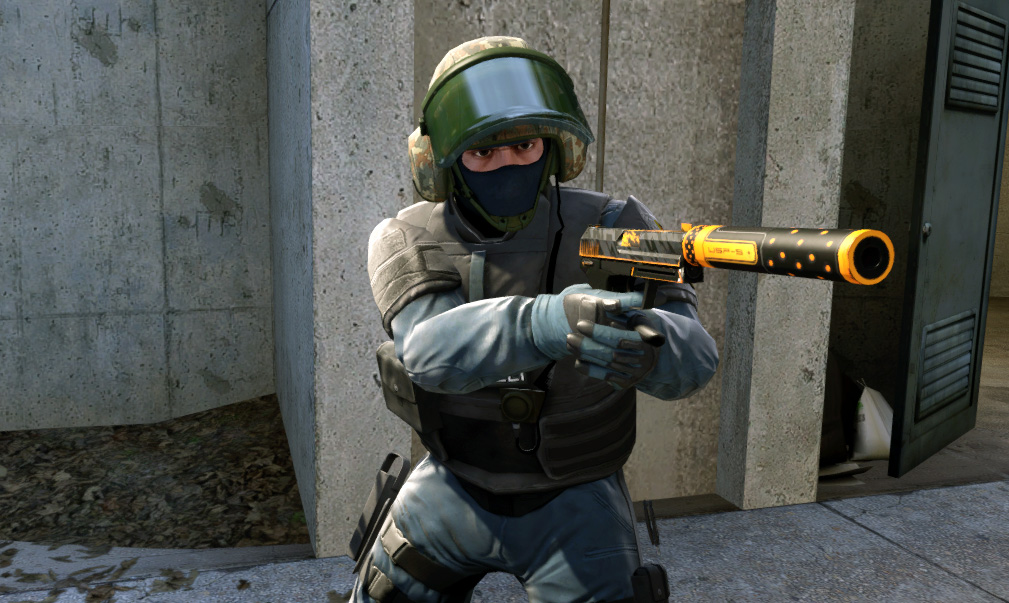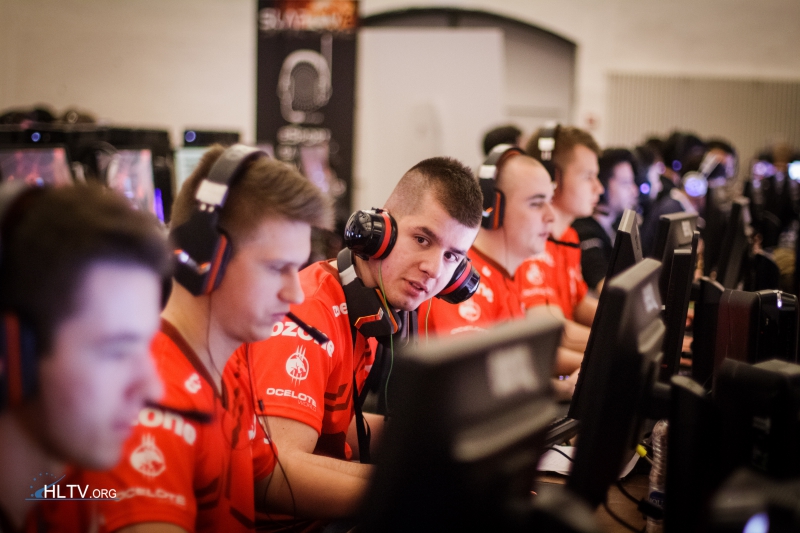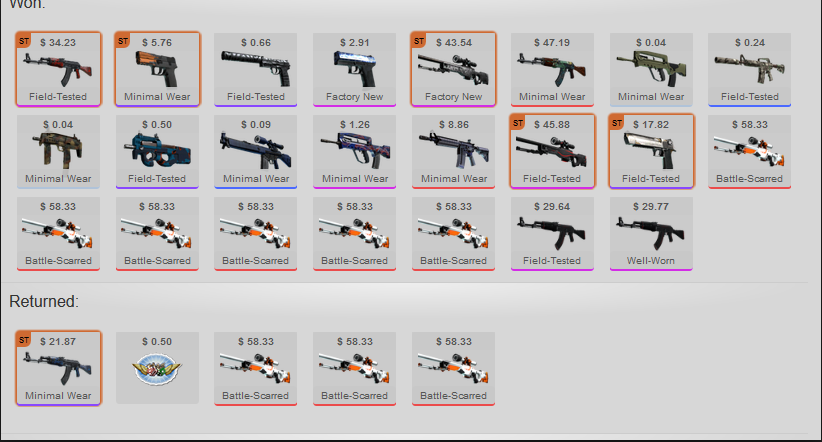A gambling site forming a CS:GO team is a troubling reflection of the game

It’s no secret that the CS:GO’s item economy can be quite profitable. Some of the game’s rarest weapon skins are priced at over $1,000 (with rare collectors’ items approaching pricelessness).
The constant and growing demand for skins by the game’s players, and the slot machine-like experience of opening weapon cases in the slim hopes of getting a desirable skin, has created a huge, free-range capitalist market that allows all kinds of gambling, trading, and skin selling to take place outside of Valve’s intended corral for such activity.
As studies have shown, prohibiting people from funneling and gambling capital tends to create an illicit market. When skins were introduced to CS:GO via the Arms Deal update in August of 2013, it was only a matter of time before players would find a way to independently price, trade, and hoard skins in an increasingly complex economic network that sees some of its entrepreneurs supposedly making over $12,000 a day.
But a new development in this CS:GO sub-culture gives cause for concern. This week CSGO Lounge, a skin trading and betting hub that is easily the most powerful and notorious of the lot, decided to officially sponsor CS:GO team Dobry Gaming. Dobry Gaming are a cadre of Polish players who are often considered the second best team within their country after the elite Virtus.pro. When three of their members were part of Games2, they may have been considered a top 20 team in the first half of 2015.
CSGO Lounge is no stranger to controversy. The site survives frequent attacks on its network, the scorn of esports personalities who associate it with underage gambling, and even recent investigations by mainstream media. Bloomberg News’ piece on underage virtual gambling specifically includes a video where the site’s front page is seen.
The site has weathered this scrutiny despite being an instrumental part of CS:GO’s biggest controversy to date: the involvement of an elite North American team in a massive match fixing scandal that used the Lounge site to make over $10,000 in skins. This scandal was so severe that it prompted a direct response from Valve, who banned every player involved and said that no players or personalities involved in professional CS:GO should gamble on matches “under any circumstances.”

Keep up to date with the most important stories and the best deals, as picked by the PC Gamer team.
What this means for CS:GO
With CSGO Lounge picking up Dobry Gaming, the water becomes even more muddied. On one hand, there has been a recent backlash against gambling sites being involved with high profile teams after a Cyprus-based bookmaker overhauled and renamed its esports division in an attempt to separate the competitive brand from the betting service. With many more skin gambling sites acquiring mid-tier teams, it is possible that the trend will continue.
On the other hand, as multiple pundits and personalities involved in the scene have stated before, the growth of skin trading and skin betting directly correlates with the explosive growth of the game, especially as an esport. There is a lurking suspicion that the massive viewing numbers of CS:GO majors are due in part to the expensive in-game drops that viewers have a chance to receive.
Players seem ambivalent and divided on the issue of betting, with some up-and-coming talent unable to handle the pressure that their otherwise minimally-spectated games would bring. Others have fully embraced it. Watch any major CS:GO tournament these days and you’ll see many professional players with name-tagged weapons branded with ‘roulette-based’ gambling sites or skin-to-cash sites.
For CSGO Lounge’s team, Lounge Gaming, not much will be different in terms of their daily life. They will no doubt attend the upcoming DreamHack Stockholm event, which functions as a qualifier for the next CS:GO major at DreamHack Cluj-Napoca in Romania.

If the team should do so however, it will present an interesting quandary for Valve, who have partnered with DreamHack and PGL to organize the major. The developer has had an uneasy relationship with CSGO Lounge and its ilk, never condemning or interdicting their business but nevertheless allowing them to exist as a black market. Were Lounge Gaming to qualify for a major, Valve would have to, for example, produce an official sticker for the team, an in-game item that would directly finance the team’s players.
There is no closing the Pandora’s Box of skin gambling. The phenomenon is so embedded in the scene that an outright removal of the market would cripple Counter-Strike. For a betting site like CSGO Lounge, acquiring a competitive team is a step towards legitimacy. CS:GO teams, unlike skin trading and gambling, are increasingly bound by rules, regulations, and a degree of transparency. Forming a team is a shrewd move for a betting service which has begun to accumulate money and wants to remain involved in the scene while appearing more established overall.
No one would dispute the call for greater regulation of esports gambling, both in the form of real money gambling sites and skin gambling. It’s sorely needed as the service grows, both to combat illegal transactions as well as to ensure competitive integrity beyond the scope which Valve can visibly control. Regulation can help enforce against underage gambling (at least on paper) and remake the entire sector into something that is more manageable.
For now however, the show goes on. The complexity of such an issue is a hint that Valve, who has historically taken a laissez-faire approach to CS:GO esports, will inevitably have to intervene as groups like CSGO Lounge further define the values of the professional scene.

